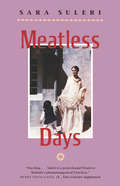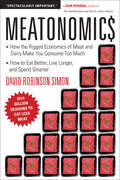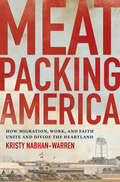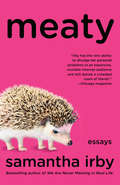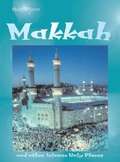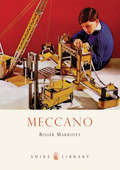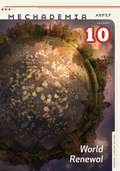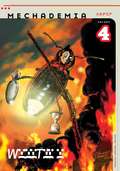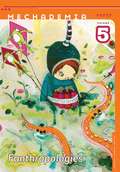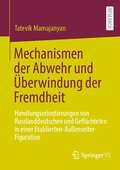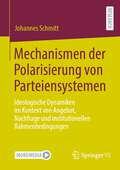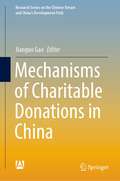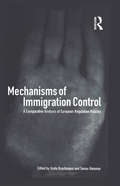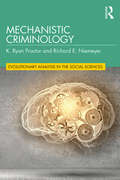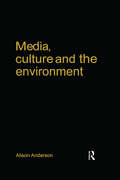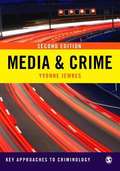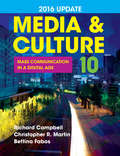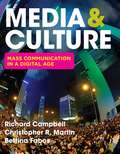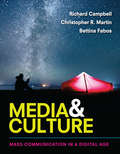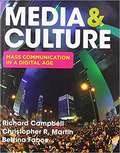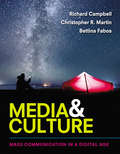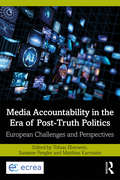- Table View
- List View
Meatless Days
by Sara SuleriIn this finely wrought memoir of life in postcolonial Pakistan, Suleri intertwines the violent history of Pakistan's independence with her own most intimate memories of her Welsh mother; of her Pakistani father, prominent political journalist Z. A. Suleri; of her tenacious grandmother Dadi and five siblings; and of her own passage to the West. "Nine autobiographical tales that move easily back and forth among Pakistan, Britain, and the United States. . . . She forays lightly into Pakistani history, and deeplyinto the history of her family and friends. . . . The Suleri women at home in Pakistan make this book sing. " Daniel Wolfe, "New York Times Book Review" "A jewel of insight and beauty. . . . Suleri's voice has the same authority when she speaks about Pakistani politics as it does in her literary interludes. " Rone Tempest, "Los Angeles Times Book Review" "The author has a gift for rendering her family with a few, deft strokes, turning them out as whole and complete as eggs. " Anita Desai, "Washington Post Book World" ""Meatless Days" takes the reader through a Third World that will surprise and confound him even as it records the author's similar perplexities while coming to terms with the West. Those voyages Suleri narrates in great strings of words and images so rich that they left this reader . . . hungering for more. " Ron Grossman, "Chicago Tribune" "Dazzling. . . . Suleri is a postcolonial Proust to Rushdie's phantasmagorical Pynchon. " Henry Louise Gates, Jr. , "Voice Literary Supplement""
Meatonomics: How the Rigged Economics of Meat and Dairy Make You Consume Too Much And How to Eat Better, Live Longer, and Spend Smarter
by David Robinson SimonIn this &“provocative and persuasive work,&” the health advocate reveals the dirty economics of meat—an industry that&’s eating into your wallet (Publishers Weekly). Few Americans are aware of the economic system that supports our country&’s supply of animal foods. Yet these forces affect us in a number of ways—none of them good. Though we only pay a few dollars per pound of meat at the grocery store, we pay far more in tax-fueled government subsidies—$38 billion more, to be exact. And subsidies are just one layer of meat&’s hidden cost. But in Meatonomics, lawyer and sustainability advocate David Robinson Simon offers a path toward lasting solutions. Animal food producers maintain market dominance with artificially low prices, misleading PR, and an outsized influence over legislation. But counteracting these manipulations is easy—with the economic sanity of plant-based foods. In Meatonomics, Simon demonstrates: How government-funded marketing influences what we think of as healthy eatingHow much of our money is spent to prop up the meat industryHow we can change our habits and our country for the better &“Spectacularly important.&” —John Robbins, author of The Food Revolution &“[A] well-researched, passionately written book.&” —Publishers Weekly
Meatpacking America: How Migration, Work, and Faith Unite and Divide the Heartland
by Kristy Nabhan-WarrenWhether valorized as the heartland or derided as flyover country, the Midwest became instantly notorious when COVID-19 infections skyrocketed among workers in meatpacking plants—and Americans feared for their meat supply. But the Midwest is not simply the place where animals are fed corn and then butchered. Native midwesterner Kristy Nabhan-Warren spent years interviewing Iowans who work in the meatpacking industry, both native-born residents and recent migrants from Latin America, Africa, and Asia. In Meatpacking America, she digs deep below the stereotype and reveals the grit and grace of a heartland that is a major global hub of migration and food production—and also, it turns out, of religion. Across the flatlands, Protestants, Catholics, and Muslims share space every day as worshippers, employees, and employers. On the bloody floors of meatpacking plants, in bustling places of worship, and in modest family homes, longtime and newly arrived Iowans spoke to Nabhan-Warren about their passion for religious faith and desire to work hard for their families. Their stories expose how faith-based aspirations for mutual understanding blend uneasily with rampant economic exploitation and racial biases. Still, these new and old midwesterners say that a mutual language of faith and morals brings them together more than any of them would have ever expected.
Meaty: Essays
by Samantha IrbyAs a writer and performer, Samantha Irby is a force of nature. As the genius behind the hilarious blog BITCHES GOTTA EAT, she's your sharp-tongued best friend who can't help but tell it like it is. In her debut essay collection MEATY, Samantha Irby explodes onto the page with essays about laughing her way through her ridiculous life of failed relationships, taco feasts, bouts with Crohn's Disease, and more. Written with the same scathing wit and poignant bluntness long-time readers have come to expect from her riotous blog, MEATY takes on subjects both highbrow and low-from why she can't be mad at Lena Dunham, to the anguish of growing up with a sick mother, to how to prepare your disgusting meat carcass for some new, hot sex, to why she wants to write your mom's Match.com profile.
Mecca and Other Islamic Holy Places (Holy Places)
by Mandy RossAn introduction to Islam which focuses on the holy sites of the religion.
Meccano
by Roger MarriottThe origin of the name is uncertain but it is now over 100 years since Frank Hornby first used the word Meccano for the toy he invented to amuse his sons. Like the product it described, it is now known all over the world and has entered the dictionary as a term in common usage. Frank Hornby's vision of an educational toy became the basis of perhaps the most successful British Toy manufacturer of the 20th century. Meccano's success, which even surprised its inventor, supported the development of many other high quality products. As well as the famous Hornby trains and Dinky Toys, special purpose motor car and aeroplane construction sets have captivated the imagination of boys since the 1930's. Using a wealth of colour illustrations Roger Marriott tells the story of Meccano, its development into a sophisticated range of parts and outfits embodying correct engineering principles, enabling boys of all ages to build models reflecting the technology of their time.For more than a century Meccano has amused several generations of boys, and a few girls, and encouraged many to become successful engineers. For many of the boys who grew up with Meccano it is still a fascinating way to "build a new toy every day", to create cranes, planes, trains, cars and many others, that really work to the enjoyment of their grandchildren and themselves.
Mechademia 10: World Renewal
by Frenchy LunningMechademia 10 revolves around a maelstrom of events: the devastation of 3/11—the earthquake, tsunami, and nuclear reactor crises—and the ongoing environmental disasters that have recently overtaken Japan. Because anime and manga have long proposed (and illustrated) alternative worlds—some created after catastrophes—it is fitting that this volume should consider this propensity for &“world renewal.&”Individual essays range widely, from a poetic and personal reflection on the ritual of tôrô nagashi (the lighting of floating paper lanterns that has traditionally commemorated souls lost in great public cataclysms, such as war) to a study of the various counterfactual histories written about the historical figure of Toyotomi Hideyoshi, a former peasant farmer who became a military dictator of feudal Japan. The book also includes an original manga, Nanohana, from the popular artist Hagio Moto, who is quoted as saying: &“I want to think together with everyone else about Fukushima and Chernobyl, about the future of the Earth, about the future of humankind, and to keep thinking moving forward.&”
Mechademia 4: War/Time (Mechademia #4)
by Frenchy LunningThe themes of war and time are intertwined in unique ways in Japanese culture, freighted as that nation is with the multiple legacies of World War II: the country&’s militarization, its victories and defeats, Hiroshima and Nagasaki, and the uneasy pacifism imposed by the victors. Delving into topics ranging from the production of wartime propaganda to the multimedia adaptations of romance narrative, contributors to the fourth volume in the Mechademia series address the political, cultural, and technological continuum between war and the everyday time of orderly social productivity that is reflected, confronted, and changed in manga, anime, and other forms of Japanese popular culture.Grouped thematically, the essays in this volume explore the relationship between national sovereignty and war (from the militarization of children as critically exposed in Grave of the Fireflies to reworkings of Japanese patriotism in The Place Promised in Our Early Days), the intersection of war and the technologies of social control (as observed in the films of Oshii Mamoru and the apocalyptic vision of Neon Genesis Evangelion), history and memory (as in manga artists working through the trauma of Japan&’s defeat in World War II and the new modalities of storytelling represented by Final Fantasy X), and the renewal and hybridization of militaristic genres as a means of subverting conventions (in Yamada Futaro&’s ninja fiction and Miuchi Suzue&’s girl knight manga).Contributors: Brent Allison; Mark Anderson; Christopher Bolton, Williams College; Martha Cornog; Marc Driscoll, U of North Carolina, Chapel Hill; Angela Drummond-Mathews, Paul Quinn College; Michael Fisch; Michael Dylan Foster, Indiana U; Wendy Goldberg; Marc Hairston, U of Texas, Dallas; Charles Shiro Inouye, Tufts University; Rei Okamoto Inouye, Northeastern U; Paul Jackson; Seth Jacobowitz, San Francisco State U; Thomas Lamarre, McGill U; Tom Looser, New York U; Sheng-mei Ma, Michigan State U; Christine Marran, U of Minnesota; Zilia Papp, Hosei U, Tokyo; Marco Pellitteri; Timothy Perper; Yoji Sakate; Chinami Sango; Deborah Scally; Deborah Shamoon, U of Notre Dame; Manami Shima; Rebecca Suter, U of Sydney; Takayuki Tatsumi, Keio U, Tokyo; Christophe Thouny; Gavin Walker; Dennis Washburn, Dartmouth College; Teresa M. Winge, Indiana U.
Mechademia 5: Fanthropologies (Mechademia #5)
by Frenchy LunningPassionate fans of anime and manga, known in Japan as otaku and active around the world, play a significant role in the creation and interpretation of this pervasive popular culture. Routinely appropriating and remixing favorite characters, narratives, imagery, and settings, otaku take control of the anime characters they consume. Fanthropologies—the fifth volume in the Mechademia series, an annual forum devoted to Japanese anime and manga—focuses on fans, fan activities, and the otaku phenomenon. The zones of activity discussed in these essays range from fan-subs (fan-subtitled versions of anime and manga) and copyright issues to gender and nationality in fandom, dolls, and other forms of consumption that fandom offers. Individual pieces include a remarkable photo essay on the emerging art of cosplay photography; an original manga about an obsessive doll-fan; and a tour of Akihabara, Tokyo's discount electronics shopping district, by a scholar disguised as a fuzzy animal.Contributors: Madeline Ashby; Jodie Beck, McGill U; Christopher Bolton, Williams College; Naitō Chizuko, Otsuma U; Ian Condry, Massachusetts Institute of Technology; Martha Cornog; Kathryn Dunlap, U of Central Florida; Ōtsuka Eiji, Kobe Design U; Gerald Figal, Vanderbilt U; Patrick W. Galbraith, U of Tokyo; Marc Hairston, U of Texas at Dallas; Marilyn Ivy, Columbia U; Koichi Iwabuchi, Waseda U; Paul Jackson; Amamiya Karin; Fan-Yi Lam; Thomas Lamarre, McGill U; Paul M. Malone, U of Waterloo; Anne McKnight, U of Southern California; Livia Monnet, U of Montreal; Susan Napier, Tufts U; Kerin Ogg; Timothy Perper; Eron Rauch; Brian Ruh, Indiana U; Nathan Shockey, Columbia U; Marc Steinberg, Concordia U; Jin C. Tomshine, U of California, San Francisco; Carissa Wolf, North Dakota State U.
Mechanic Shop Femme’s Guide to Car Ownership: Uncomplicating Cars for All of Us
by Chaya M. MilchteinA comprehensive guide to car ownership and maintenance intended for anyone—regardless of age, gender or experience. When did you last pick up a book about cars? Typically written for men, particularly automotive enthusiasts and mechanics, these books rarely appeal to the everyday car owner. Mechanic Shop Femme&’s Guide to Car Ownership is different. Automotive educator, journalist, and social media influencer Chaya M. Milchtein is a queer woman who has spent the last decade deeply entrenched in the automotive industry. In a country where economic injustices disproportionately impact marginalized people, particularly people of color and the LGBTQ+ community, a reliable car and an excellent relationship with a quality mechanic is vital to climb out of poverty. Chaya understands that a vehicle is an economic necessity that can provide access to career opportunities, financial security, and physical safety. She also understands that queer folks and women often find it daunting to buy a car and, subsequently, deal with the realities of getting it insured and repaired. In Mechanic Shop Femme&’s Guide to Car Ownership, Chaya speaks to readers of all identities and socio-economic backgrounds, arming them with the necessary knowledge to navigate the intimidating automotive industry. At its core, this book is an accessible and comprehensive guide that will put readers at ease by providing them with basic knowledge about car ownership and maintenance. From buying a car, to getting it insured, finding the perfect mechanic, and dealing with car emergencies, Chaya encourages her audience to make educated decisions regarding their vehicles. Mechanic Shop Femme&’s Guide to Car Ownership is a must-have—one that will last readers through a lifetime of car ownership.
Mechanismen der Abwehr und Überwindung der Fremdheit: Handlungsorientierungen von Russlanddeutschen und Geflüchteten in einer Etablierten-Außenseiter-Figuration
by Tatevik MamajanyanDas vorliegende Buch befasst sich mit Umgangspraktiken mit Fremdheit aus der Perspektive von nach Deutschland zugewanderten Menschen aus zwei unterschiedlichen Migrationsphasen: Zugewanderte der 1990er Jahre und als Geflüchtete seit 2015 nach Deutschland zugewanderte Menschen. Latente Spannungen, Ängste, Konflikte, Ausgrenzungs- und Stigmatisierungsprozesse zwischen den früh und neu Zugewanderten deuten auf eine Etablierten-Außenseiter-Figuration zwischen den beiden genannten Zuwanderungsgruppen hin. Es wird gezeigt, dass die Beziehung zwischen den „etablierten Migrant*innen“ und den als Außenseiter stehenden Geflüchteten zum einen auf Prozesse deutet, dass und wie früh Zugewanderte zu „Einheimischen“ wurden und somit eine Phase des Fremdseins offenbar überwunden haben. Zum anderen deuten aktuell wahrnehmbare Vorurteile, Zuschreibungen und Rassismen von Zugewanderten der 1990er Jahre darauf hin, dass die eigenen Fremdheitserfahrungen in der Zeit des Ankommens in Deutschland nahezu verdrängt oder verdeckt wurden.
Mechanismen der Polarisierung von Parteiensystemen: Ideologische Dynamiken im Kontext von Angebot, Nachfrage und institutionellen Rahmenbedingungen
by Johannes SchmittIn der vergleichenden Politikwissenschaft ist der Indikator der Polarisierung zur Analyse von Parteiensystemen seit dem zentralen Werk von Giovanni Sartori etabliert. Sowohl eine zu niedrige als auch eine zu hohe Polarisierung charakterisieren einen dysfunktionalen Parteienwettbewerb. Allerdings sind die Ursachen, welche die Entstehung von Polarisierung erklären, nicht ausreichend erforscht. Die Arbeit widmet sich deshalb der Frage: Warum polarisieren sich demokratische Parteiensysteme und, unter welchen Bedingungen ist wiederum eine Entpolarisierung zu erwarten? Im Rahmen einer international-vergleichenden, quantitativen Analyse wird eine Antwort auf diese Frage gesucht. Zusammenfassend zeigt sich, dass insbesondere in den westeuropäischen Verhältniswahlsystemen die Polarisierung immer dann hoch ist, wenn sich der politische Wettbewerbsraum auf eine Dimension reduziert, eine Zentrumskoalition mit einer schwachen Opposition konfrontiert ist, das Parteiensystem gleichzeitig fragmentiert ist, das Elektorat in seinen Präferenzen polarisiert ist und die Wähler sowie Wählerinnen mit der Regierung unzufrieden sind.
Mechanismen des institutionellen Antiziganismus: Kommunale Praktiken und EU-Binnenmigration am Beispiel einer westdeutschen Großstadt (Bürgerbewusstsein)
by Tobias Neuburger Christian HinrichsUnter Schlagworten wie "Armutszuwanderung aus Südosteuropa" entwickelte sich verstärkt seit 2013 ein politischer Abwehrdiskurs in Bezug auf die EU-Binnenmigration aus Rumänien und Bulgarien in deutsche Großstädte. In diesem Buch gehen die Autoren anhand einer Einzelfallstudie der Frage nach, wie dieser Diskurs die kommunale Praxis in einer westdeutschen Großstadt strukturierte. Durch umfangreiche empirische Erhebungen konnten sie einen Prozess des institutionellen Antiziganismus rekonstruieren, in dessen Zuge die Diskriminierung von sogenannten "Armutszuwanderern" – ein verwaltungssprachliches Substitut für das Stigma "Roma" – sukzessive ausgeweitet wurde. Dieser Prozess besteht aus wechselseitig sich verstärkenden Grenzziehungs- und Ausschlusspraktiken, die aus Geschichte und Gegenwart des Antiziganismus bestens bekannt sind und an die Tradition kommunaler Gefahrenabwehr anknüpfen.
Mechanisms of Charitable Donations in China (Research Series on the Chinese Dream and China’s Development Path)
by Jianguo GaoThis book analyzes the positive changes, challenges, and corresponding solutions regarding charitable donation in China. It discusses a number of issues, including donors and their modes of donation, donation intermediaries and their behavioral characteristics, cultural and social factors influencing charitable donation, methods of raising charitable funds, ways of providing charitable assistance and innovation, and trends in the development of charitable donation mechanisms in China. Confirming previous findings and integrating theoretical and applied studies, the book draws new conclusions and offers fresh insights into the research questions. It also includes a multi-dimensional analysis of the behavioral patterns of the donors and the charitable donation mechanisms in contemporary China from integrated perspectives, with a systematic generalization of their key features and trends. Further topics explored include the community-based charity promotion mechanism and the trends in the mechanism development in China, which have seldom been touched on by other scholars in the field.
Mechanisms of Immigration Control: A Comparative Analysis of European Regulation Policies
by Grete BrochmannPerhaps the most vexing question facing Europe today is what to do about asylum seekers and people in search of work who arrive daily, some escaping nations where poverty and persecution are, for them, facts of life. Given its costs - both human and economic - immigration policy has understandably become a highly politicized issue. With the abolition of internal borders within the EU, new controls are needed to stop immigration and to prevent non-citizens from working illegally. New external policies are being used, such as early warning systems and visa controls, with the long-term aim of reducing emigration from poor and war-ridden nations. Europe has also intensified its control of internal aliens. But there are limits to how tight a control can be made without violating the norms and values of the democratic state, where human rights should be valid for citizens and non-citizens alike. However, free immigration is not in the interests of the European states. It might undermine labour and housing markets, make planning impossible, and alter the preconditions for welfare states. This timely book addresses the politics and mechanisms of immigration control in Europe in an effort to unravel its complexities and propose sensible solutions. It covers recent events, including racist and populist party politics, as well as changes in the international setting, such as the development within the European Union and Schengen, and the recent refugee crisis in the former Yugoslavia. It will be essential reading for anyone interested in immigration studies, European politics, international relations, anthropology and sociology.
Mechanistic Criminology (Evolutionary Analysis in the Social Sciences)
by K. Ryan Proctor Richard E. NiemeyerThe science of criminology is at a crossroads. Despite accumulating a dizzying array of facts about crime, the field has yet to identify a body of theories that allows for the adequate prediction, explanation, and control of phenomena of central interest to criminologists. Mechanistic Criminology locates this problem within the field’s failure to conform to the expectations of scientific fields and reliance on antiquated methods of theory construction. The authors contend that this failure has resulted in an inability of criminologists to engage in theory falsification and competition—two central activities of science—that produce the forms of reliable knowledge that are unique to scientific fields. Mechanistic Criminology advocates for the adoption of a mechanistic mode of theorizing to allow criminologists to engage in theory falsification and competition and ignite rapid scientific discovery in the field. The proposed method is the same one employed within the biological sciences, which is responsible for their rapid scientific progress in the late twentieth and early twenty-first centuries. Should criminologists adopt this mechanistic approach, criminology could experience the same scientific revolution that is occurring in the biological sciences, and criminologists would generate the knowledge necessary for the prediction, explanation, and control of crime.
Media Culture & Environ. Co-P (Communications, Media And Culture Ser.)
by Alison AndersonFirst Published in 1997. This book is intended for final year undergraduates and postgraduates in cultural and media studies, as well as postgraduate and academic researchers. Courses on culture and the media within sociology, environmental studies, human geography and politics.
Media & Crime
by Yvonne Jewkes'Media and Crime is a thought-provoking and scholarly work written in a very lively style. It will be of interest to readers of SCHOLAG whether or not they have some knowledge of criminological theories. ' Jean McFadden, SCOLAG Journal `Criminologists and a bewildering array of other voices have commented on the relationship between media and crime on many occasions over many decades. Those of us who have worked and taught in this area have often sensed the lack of an authoritative, systematic and up to date text to which one could refer with confidence. Yvonne Jewkes has now given us that book and we are in her debt. Jewkes is one of the few who knows the fields of both media studies and criminology equally well. She writes with confidence, clarity, insight and style. Media and Crime does not just cover the debate, it moves it forward. This is a striking and admirable achievement. This book will be widely read and widely welcomed by students and by Jewkes's academic peers' - Professor Richard Sparks, University of Edinburgh `The book reviews key media and criminological debates against contemporary developments in the media and twenty-first century concerns about crime. More than that Media and Crime is intellectually provocative, lucid, astute and simply a good read' - Dr Maggie Wykes, University of Sheffield `A thought-provoking critical analysis of how the mass media construct the issue of crime in the public realm. Clearly written and based on a wide-ranging review of research on crime and media it will be an invaluable source for students' - Professor Robert Reiner, London School of Economics and Politcal Science `This book offers a vibrant and lucid guide to the constructions of crime in media culture, and the complex interactions between consumers and producers. Comprehensive and authoritatively written, Media and Crime should appear on all essential reading lists for students of criminology and media culture' - Paul Mason, Southampton Institute • Why do only certain criminal events become thrust into the public sphere with sufficient vigour to shape public fears of victimization? • Why are some crimes sustained by sufficiently intense public outcry to become part of our cultural fabric, while other, almost identical incidents, fail to capture the collective imagination? • Why do some very serious crimes cast a much longer shadow than others, and some offenders take on an iconic evilness while others fade into quiet obscurity? This book points a critical spotlight on media constructions of crime and social control, developing our understanding of the relationship between media and crime, and taking existing knowledge in new directions. Media and Crime is an accessible text with a strong pedagogic purpose, making it an ideal introduction to the study of crime and the mass media for undergraduate and postgraduate students. The author interrogates the most important literature in the field as well as moving the debates forward with new ideas and values. Substantive topics of current interest are covered, including: • news reporting of crime • media constructions of children and women as victims and offenders • moral panics over paedophiles • the relationship between the media and the police • ‘reality’ crime shows • surveillance and social control • new media. Chapter overviews, key terms, study questions and suggestions for further reading map the key issues in this vital and topical area of debate. The book is essential reading for students in a wide range of academic fields including criminology, media studies, sociology, gender studies and psychology.
Media & Culture
by Richard Campbell Bettina Fabos Christopher R. MartinWhile we all use digital technology daily many of us don't realize how text, audio, and visual media converge together to enhance our everyday experiences. The tenth edition of Media & Culture: Mass Communication in a Digital Age enriches students' understanding of these experiences by focusing on what the constant changes mean to their everyday lives. Since the publication of the tenth edition, we've seen even more changes: revisions in net neutrality laws, shifts in viewing habits, new forms of online activism, and the kickoff of a new, media-saturated presidential race. The new 2016 update of Media & Culture covers these issues, alongside new infographics, photos, cross-reference pages, and a digital jobs feature. Media & Culture brings together industry expertise, media history, and current trends for an exhilarating look at the media right now.
Media & Culture: An Introduction To Mass Communication
by Richard Campbell Bettina Fabos Christopher R. MartinWhile we all use digital technology daily, many of us don't realize how text, audio, and visual media converge together to enhance our everyday experiences. <P><P> The new edition of Media & Culture: Mass Communication in a Digital Age enriches students' understanding of these experiences – a skill that has become more important than ever. Media & Culture starts with the digital world students know and then goes further, focusing on what these constant changes mean to them. <P><P>Through new infographics, cross-reference pages, and a digital jobs feature, the book explains and illustrates how the media industries connect, interlock, and converge, Media & Culture brings together industry expertise, media history, and current trends for an engaging, exhilarating look at the media right now.
Media & Culture: An Introduction to Mass Communication
by Richard Campbell Bettina Fabos Christopher R. MartinWhile we all use digital technology daily, many of us don't realize how text, audio, and visual media converge together to enhance our everyday experiences. <P><P>The new edition of Media & Culture: Mass Communication in a Digital Age enriches students' understanding of these experiences - a skill that has become more important than ever. Media & Culture starts with the digital world students know and then goes further, focusing on what these constant changes mean to them. <P><P>Through new infographics, cross-reference pages, and a digital jobs feature, the book explains and illustrates how the media industries connect, interlock, and converge, Media & Culture brings together industry expertise, media history, and current trends for an engaging, exhilarating look at the media right now.
Media & Culture: An Introduction to Mass Communication
by Richard Campbell; Christopher MartinThe current examples, compelling storytelling, and cutting-edge new design also help to keep students engaged. Now, this groundbreaking new edition has been revised from top to bottom making it a better learning tool than ever before.
Media & Culture: Mass Communication in a Digital Age
by Richard Campbell Christopher Martin Bettina FabosWhile we all use digital technology daily, many of us don't realize how text, audio, and visual media converge together to enhance our everyday experiences. The new edition of Media & Culture: Mass Communication in a Digital Age enriches students' understanding of these experiences – a skill that has become more important than ever. Media & Culture starts with the digital world students know and then goes further, focusing on what these constant changes mean to them. Through new infographics, cross-reference pages, and a digital jobs feature, the book explains and illustrates how the media industries connect, interlock, and converge, Media & Culture brings together industry expertise, media history, and current trends for an engaging, exhilarating look at the media right now.
Media & Culture: Mass Communication in a Digital Age (Tenth Edition 2016 Update)
by Richard Campbell Bettina Fabos Christopher R. MartinThe tenth edition of Media & Culture confronts the digital realities of how we consume media--and how students learn in today's classroom. The book shares stories about the history of media, the digital revolution, and ongoing convergence
Media Accountability in the Era of Post-Truth Politics: European Challenges and Perspectives (Routledge Studies in European Communication Research and Education)
by Matthias Karmasin Tobias Eberwein Susanne FenglerBringing together both leading international scholars and emerging academic talent, Media Accountability in the Era of Post-Truth Politics maps the current state of media accountability in Europe and provides fresh perspectives for future developments in media and communication fields. As the integrity of the international media landscape is challenged by far-reaching transformations and the rise of “fake news,” the need for a functional system of media regulation is greater than ever. This book addresses the pressing need to re-evaluate and redefine the notion of accountability in the fast-changing field of journalism and “information provision.” Using comparative research and empirical data, the book’s case studies address the notion of media accountability from various perspectives, considering political and societal change, economic, organisational and technological factors, and the changing role of media audiences. By collecting and juxtaposing these studies, the book provides a new discussion for the old question of how we can safeguard free and responsible media in Europe – a question that seems more urgent than ever. Media Accountability in the Era of Post-Truth Politics is an essential read for students and researchers in journalism, media and communication studies.
